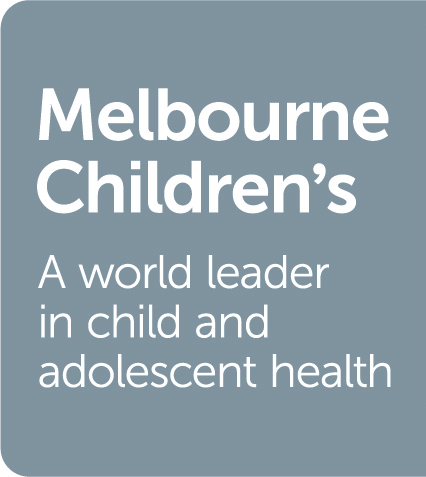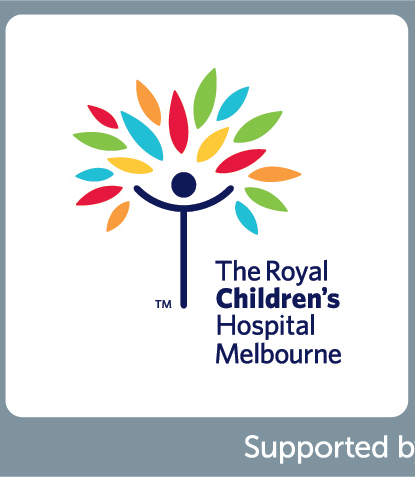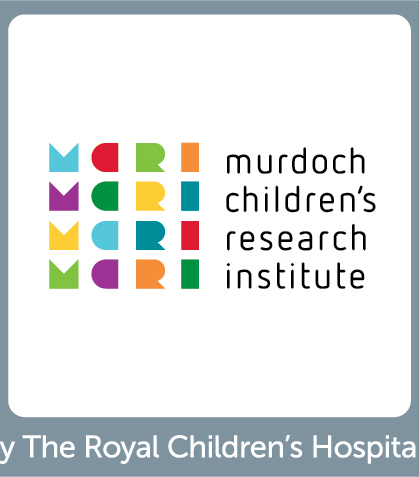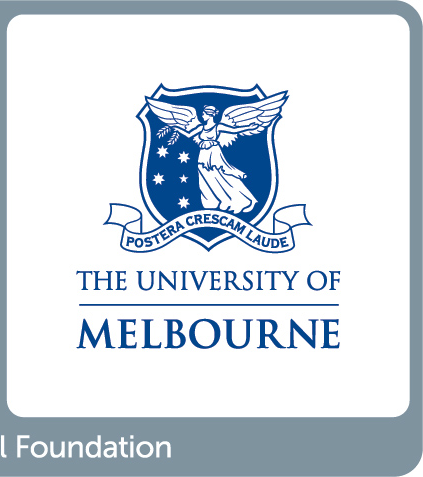Generation Victoria (GenV)
Based at the Murdoch Children’s Research Institute (MCRI), GenV is recruiting large, parallel whole-of-state cohorts of children born 2021-2023 and their parents for discovery and interventional research. GenV is designed to address physical, mental, and social issues experienced during childhood and midlife, as well as the antecedents of a wide range of diseases of ageing. It will generate translatable evidence—including prediction, prevention, treatments, and services—to improve future well-being and reduce future disease burden. GenV’s ‘building blocks’ comprise consent, biosamples, linkage to administrative and service/clinical data, GenV-collected data, a capability for integrated studies, and a platform designed to provide value to its consumers. Inclusivity and Open Science are core values.
Learn more about GenV at genv.org.au/for-researchers/
| Year | 2020-Ongoing | 2021-Ongoing | 2021-Ongoing | 2021-Ongoing | 2021-Ongoing |
|---|---|---|---|---|---|
| Age | Birth | 3m | 6m | 9m | 12m |
| Age | 0-3 months | 3-6 months | 6-9 months | 9-12 months | 12-18 months |
| N | in progress | in progress | in progress | in progress | in progress |
| RELEVANT LIFECOURSE DOMAINS | Allergies | ||||
| Anthropometrics | |||||
| Cardiovascular health | |||||
| Community environment | |||||
| Demographics | |||||
| Education and childcare | |||||
| Environmental and climate exposures | |||||
| Family environment | Family environment | ||||
| Health services | |||||
| Hearing | |||||
| Imaging | |||||
| Medications and supplements | |||||
| Mental health and behaviour problems | |||||
| Neurocognitive development | |||||
| Nutrition | |||||
| Other health information | |||||
| Physical appearance | |||||
| Pregnancy and birth | Pregnancy and birth | ||||
| Psychosocial wellbeing | |||||
| Respiratory health | |||||
| Romantic relationships | |||||
| Sleep | |||||
| Speech and language | |||||
| Substance use | |||||
| Temperament and personality | Temperament and personality | ||||
| Study Summary | |
|---|---|
| Study name | Generation Victoria |
| Study abbreviation | GenV |
| Current principal investigator/s |
Melissa Wake Richard Saffery Sharon Goldfeld Natasha Zaritski |
| Current project manager |
Vanda Tedesco: Program Manager |
| Primary Institution/s |
Murdoch Children’s Research Institute - MCRI
|
| Collaborating Institution/s |
The Royal Children’s Hospital - RCH
The University of Melbourne, Department of Paediatrics - UoM The Victorian Government - DHHS Cross-sectoral coalition of partners – see https://genv.org.au/about-genv/supporters-and-partners/ |
| Major funding source/s |
Paul Ramsay Foundation - PRF
Victorian State Government The Royal Children’s Hospital Foundation - RCHF National Health and Medical Research Council - NHMRC Medical Research Future Fund - MRFF |
| Study website | https://genv.org.au/ https://www.mcri.edu.au/genv |
| Key reference for study | |
| Study focus |
GenV is conceptualised as very large birth and parent cohorts, open to all babies born in the state of Victoria over a two-year period and their parents. It will be multi-purpose, supporting observational, interventional, health services and policy research within the same cohort. It is designed to address physical and mental health and social issues experienced during childhood, as well as childhood and adult antecedents of health or disease during ageing. It seeks to generate translatable evidence (prediction, prevention, treatments, services) to improve future wellbeing and reduce the future disease burden of all children and adults. |
| Sampling frame |
The GenV Cohort 2020s is open to all babies born over a two-year period, and their parents, residing in the state of Victoria Australia. The GenV Cohort 2020s is preceded by an Advance cohort of babies born between 5 Dec 2020 and 3 October 2021, and their parents. This comprises all families recruited at GenV's Vanguard hospital (Joan Kirner Women's and Children's) and at birthing hospitals throughout Victoria as GenV scaled up to commence recruiting for the GenV Cohort 2020s. |
| Primary study type | Longitudinal cohort |
| Year commenced |
2021 |
| Is this study ongoing? | Yes - the study is ongoing |
| Ongoing recruitment? | Yes |
| Sample size (N) |
Target: approximately 150,000 newborns and their parents |
| Survey data available? | Yes |
| Imaging data available? | No |
| Linkage to administrative dataset/s? | Yes, linkage to (at least one) administrative dataset underway |
| Biosamples available? | Yes |
| Are data available to others outside study team, with appropriate safeguards and structures in line with the cohort’s ethics and governance processes? | Yes |
| Are there any costs associated with data/sample access for approved requests? | There are usually no costs associated with access |
| Broadest type of participant consent available |
Unspecified consent (can be used for any future ethically approved research) |
2023
Alanna N G, Richard S, Andrew J D, Gregory W, Bowon K, Melissa W, Anna C, Valerie S. (2023). Validating the ORACollect for the detection of cytomegalovirus International Journal of Clinical Virology, 7(1), 007 - 010. DOI: 10.29328/journal.ijcv.1001053
Wang J, Hu YJ, Collins L, Fedyukova A, Aggarwal V, Mensah F, Cheong JLY, Wake M, GenV Newborns Working Group . (2023). Study protocol: Generation Victoria (GenV) special care nursery registry. Int J Popul Data Sci, 8(1), 2139. DOI: 10.23889/ijpds.v8i1.2139
2022
Hu YJ, Fedyukova A, Wang J, Said JM, Thomas N, Noble E, Cheong JLY, Karanatsios B, Goldfeld S, Wake M. (2022). Improving Cohort-Hospital Matching Accuracy through Standardization and Validation of Participant Identifiable Information. Children (Basel), 9(12). DOI: 10.3390/children9121916
Musgrove E, Gasparini L, McBain K, Clifford SA, Carter SA, Teede H, Wake M. (2022). Synthesizing Core Outcome Sets for outcomes research in cohort studies: a systematic review. Pediatr Res, 92(4), 936 - 945. DOI: 10.1038/s41390-021-01801-2
2021
Hu YJ, Wake M, Clifford S, Said J. (2021). 1059Innovative epidemiological methods in a whole-of-state cohort of children and parents: Generation Victoria (GenV) International Journal of Epidemiology, 50(Supplement_1), dyab168.290. DOI: 10.1093/ije/dyab168.290
Nkyekyer J, Clifford SA, Mensah FK, Wang Y, Chiu L, Wake M. (2021). Maximizing Participant Engagement, Participation, and Retention in Cohort Studies Using Digital Methods: Rapid Review to Inform the Next Generation of Very Large Birth Cohorts. J Med Internet Res, 23(5), e23499. DOI: 10.2196/23499
Sung V, Williams K, Perlow E, Hu YJ, Ahern S, Said JM, Karanatsios B, Hopper JL, McNeil JJ, Donnan L, Goldfeld S, Wake M. (2021). Enhancing Value and Uptake for Whole-Population Cohorts of Children and Parents: Methods to Integrate Registries into the Generation Victoria Cohort. Children (Basel), 8(4). DOI: 10.3390/children8040285
Wang J, Hu YJ, Clifford S, Goldfeld S, Wake M. (2021). Selecting life course frameworks to guide and communicate large new cohort studies: Generation Victoria (GenV) case study. J Dev Orig Health Dis, 12(6), 829 - 848. DOI: 10.1017/S2040174420001245
0
Nkyekyer J, Clifford SA, Mensah FK, Wang Y, Chiu L, Wake M. (). Maximizing Participant Engagement, Participation, and Retention in Cohort Studies Using Digital Methods: Rapid Review to Inform the Next Generation of Very Large Birth Cohorts (Preprint) . DOI: 10.2196/preprints.23499
| Study Contacts | |
|---|---|
| Principal investigator/s |
Melissa Wake Richard Saffery Sharon Goldfeld Natasha Zaritski |
| Project manager |
Vanda Tedesco: Program Manager |
| Study Contact |
Email: [email protected] Interested in collaborating with the GenV team? Find out more here: |



